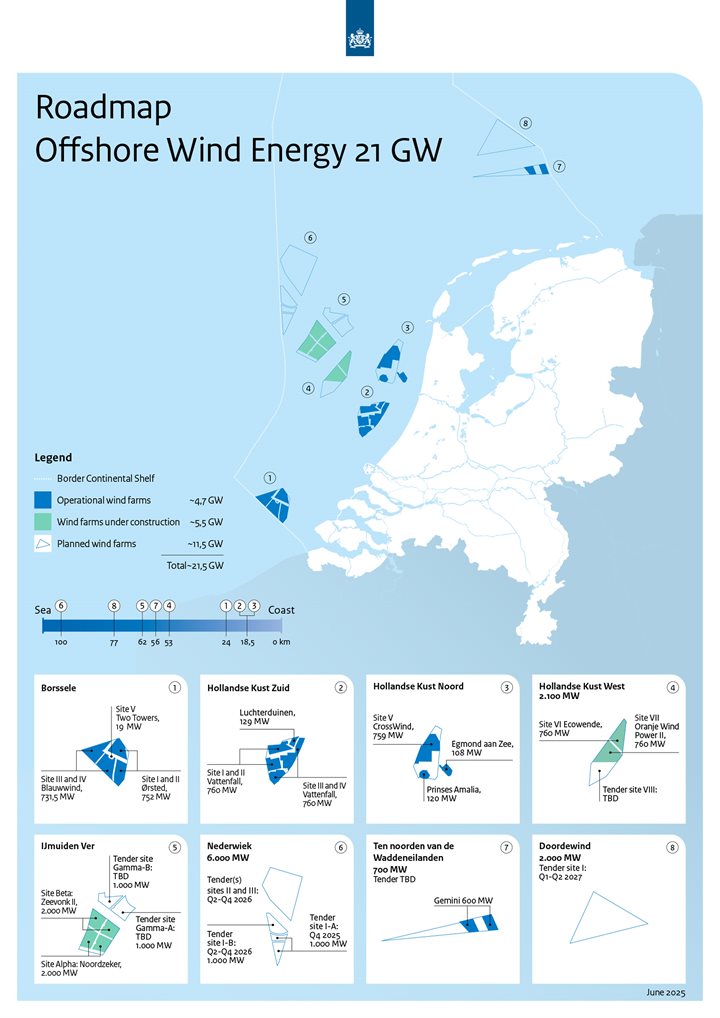Offshore wind energy
The Netherlands is working towards sustainable and affordable power that is available to everyone. The transition to energy from renewable sources is of great importance to our contribution, at national level, to the targets set out in the Paris Climate Agreement. In addition, the reduced availability of fossil fuels and the level of dependency on international power suppliers also means that there is demand for alternative sources of energy. The Dutch section of the North Sea has the potential to play a significant role in hitting the targets of the Climate Agreement and the transition to energy from renewable sources, not least with offshore wind energy.

Download the Roadmap as pdf. (pdf, 795 kB)
Balancing of interests
When implementing the plans for large-scale roll-out of offshore wind energy, the government weighs up the different interests at sea and on shore as much as possible. Although it appears that there is ‘an ocean of space’ in the North Sea, practice shows that a lot of that space is already in use: there are busy shipping channels, many fisheries, and oil and gas are extracted; other than that, the Dutch Ministry of Defence has exercise areas, and there are nature areas and areas designated for sand extraction (both for commercial purposes and to bolster the coastline of the Netherlands). In some places, the sea is unsuitable for wind turbines, because it is too deep. In addition, a greater distance to the coast demands longer, more expensive cables and higher maintenance costs. So where offshore wind farms are ultimately located is a fairly exact science. A number of factors have to be taken into account, including affordability, energy yield and the effects on aspects such as nature, oil and gas extraction, the fishing industry, shipping and tourism.
Collaboration
The Dutch Ministries of Climate Policy and Green Growth, Infrastructure and Water Management, Agriculture, Fisheries, Food Security and Nature, and the Ministry of the Interior and Kingdom Relations are collaborating to hit the target in the Offshore Wind Energy programme. In order to realise the plans the wind energy sector, the stakeholders at sea, the coastal authorities and residents are all involved.